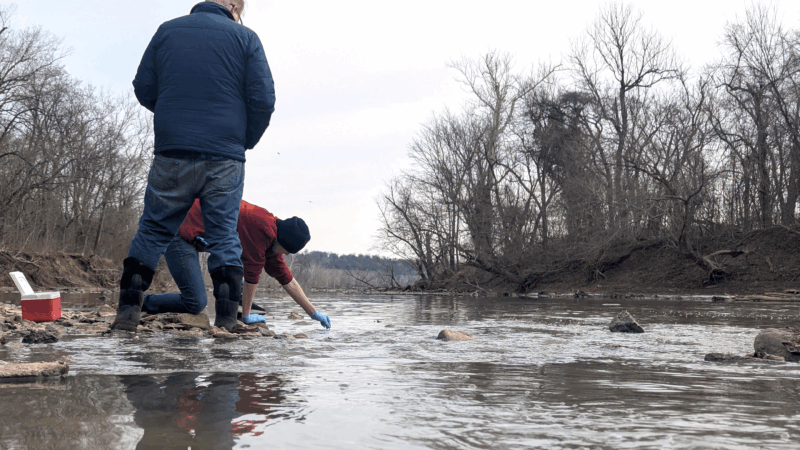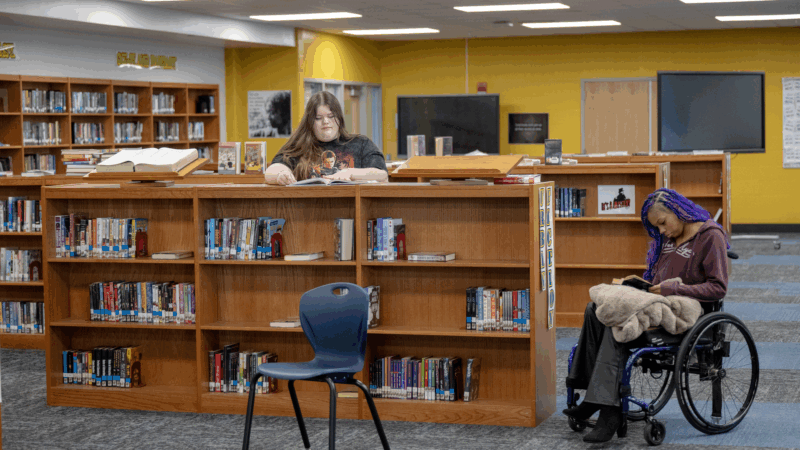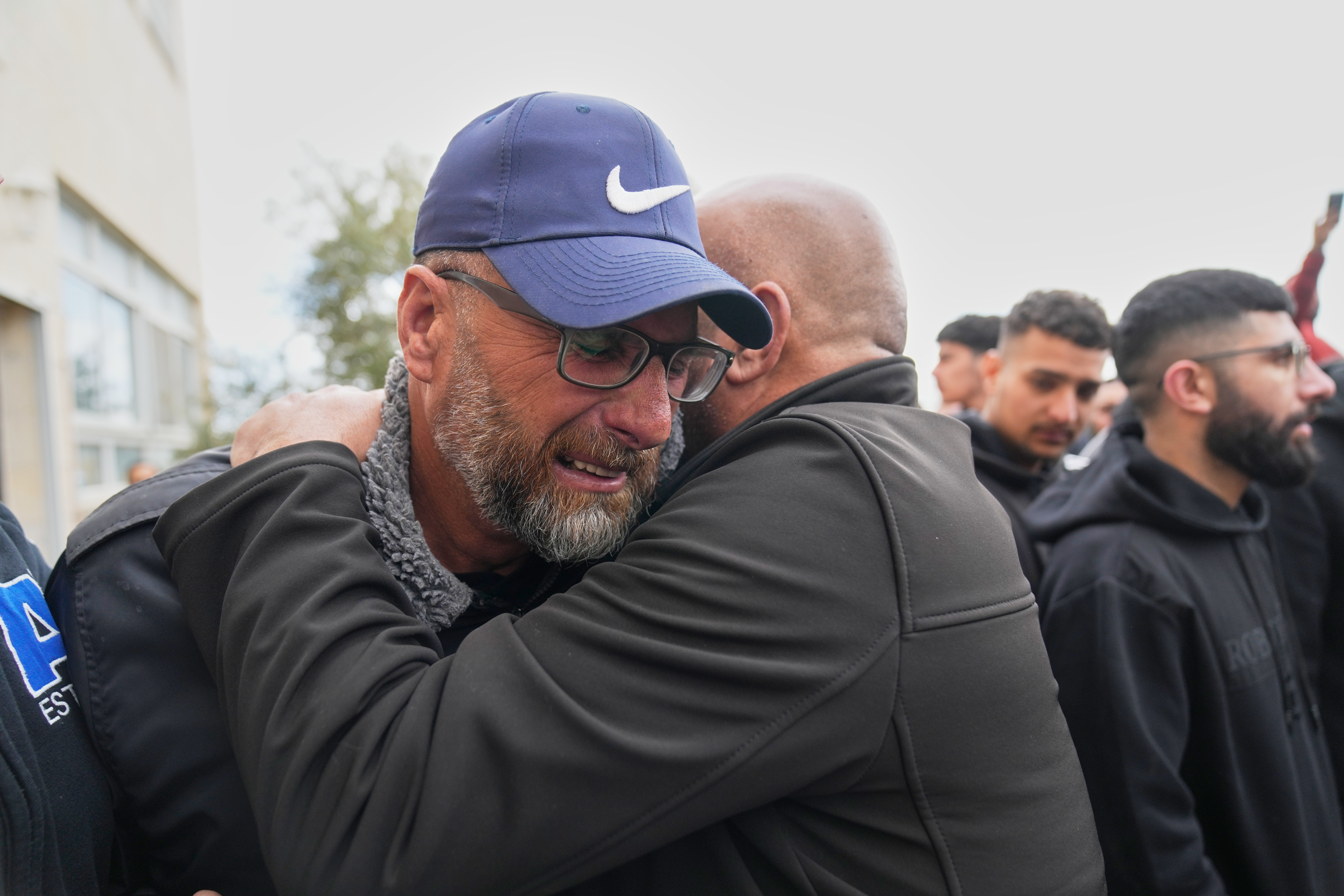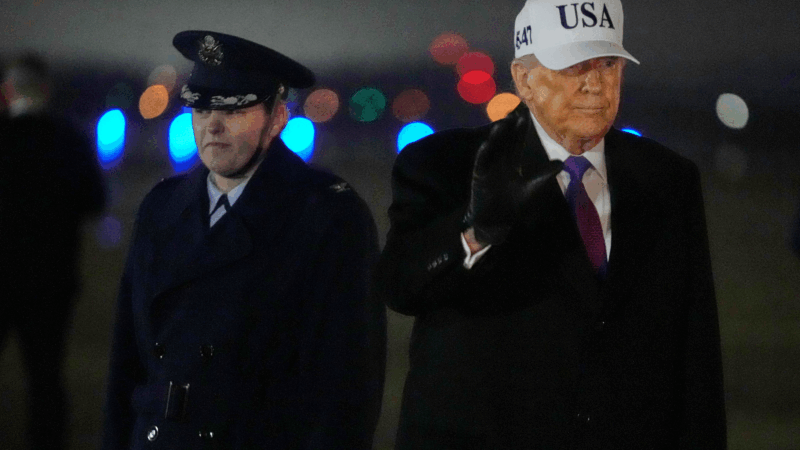The Accidental LGBT Activist: Jim Obergefell Speaks to Students at UAB
Jim Obergefell’s name will always be connected to the issue of same-sex marriage. He was at the center of the U.S. Supreme Court case that legalized same-sex marriage nationwide. He spoke to a small crowd at the University of Alabama at Birmingham Wednesday about what’s he’s been doing since that landmark day in 2015.
Obergefell told the crowd of mostly UAB students he will not be invisible. The term is used to describe the lives of many LGBTQ people around the country. He said many hide their true identities for fear of discrimination, especially in conservative Alabama.
“We hide our true, authentic self from our family, our friends, our colleagues and our community,” he said. “We think twice about holding the hand of the person we love in public.”
Obergefell shared the story of his 20-year relationship with his husband John and how they fought the same-sex marriage ban in their home state of Ohio. When John died in 2013 from Lou Gehrig’s Disease, Ohio didn’t recognize Obergefell as John’s spouse on the death certificate. This started a years-long legal battle that would end in sweeping marriage equality. That was when Obergefell became what he calls an accidental activist.
“As a gay man, I will always fight for the LGBT community,” he said. “But I am no longer just an LGBTQ activist. I’m a human rights activist. We are much more similar than we are different. And I’m sick and tired of those differences being used to divide. No person deserves to be invisible.”
He says he’s concerned that the current presidential administration is on a mission to strip away the LGBT rights that he and those who came before him have fought so hard to accomplish. And he sees GOP U.S. Senate candidate Roy Moore as another looming threat to those rights. Moore was removed as Alabama’s Supreme Court Chief Justice when he refused to comply with federal orders legalizing same-sex marriage. But Ogerbefell is also hopeful. He says laws like Birmingham’s recently passed non-discrimination act, which makes discrimination a criminal offense, are signs that the LGBT community has allies in places where it matters most.
Scientists worry about lasting damage from Potomac sewage spill
Drinking water around the District of Columbia hasn't been contaminated. But scientists say the environmental damage could be severe.
Using saliva to detect disease holds promise, but it’s not perfected yet
Easier than a blood test, saliva tests have the potential to detect cavities, infections and even cancer. But a lack of insurance coverage and other obstacles stand in the way of wider use.
What worked and what didn’t with a cellphone ban at a Kentucky school
Keeping students off their devices is the new norm in many schools. We talked to students and educators at one Kentucky school to see how it's working.
Israeli settlers kill 19-year-old Palestinian American, officials and witnesses say
Israeli settlers in the occupied West Bank shot and killed a Palestinian American man during an attack on a village, the Palestinian Health Ministry said.
Trump says he doesn’t know if aliens are real but directs government to release files on UFOs
President Donald Trump said Thursday that he's directing the Pentagon and other government agencies to release files related to extraterrestrials and UFOs because of "tremendous interest."
Trump warns of ‘bad things’ if Iran doesn’t make a deal, as second U.S. carrier nears Mideast
Iran held annual military drills with Russia on Thursday as a second American aircraft carrier drew closer to the Middle East.







